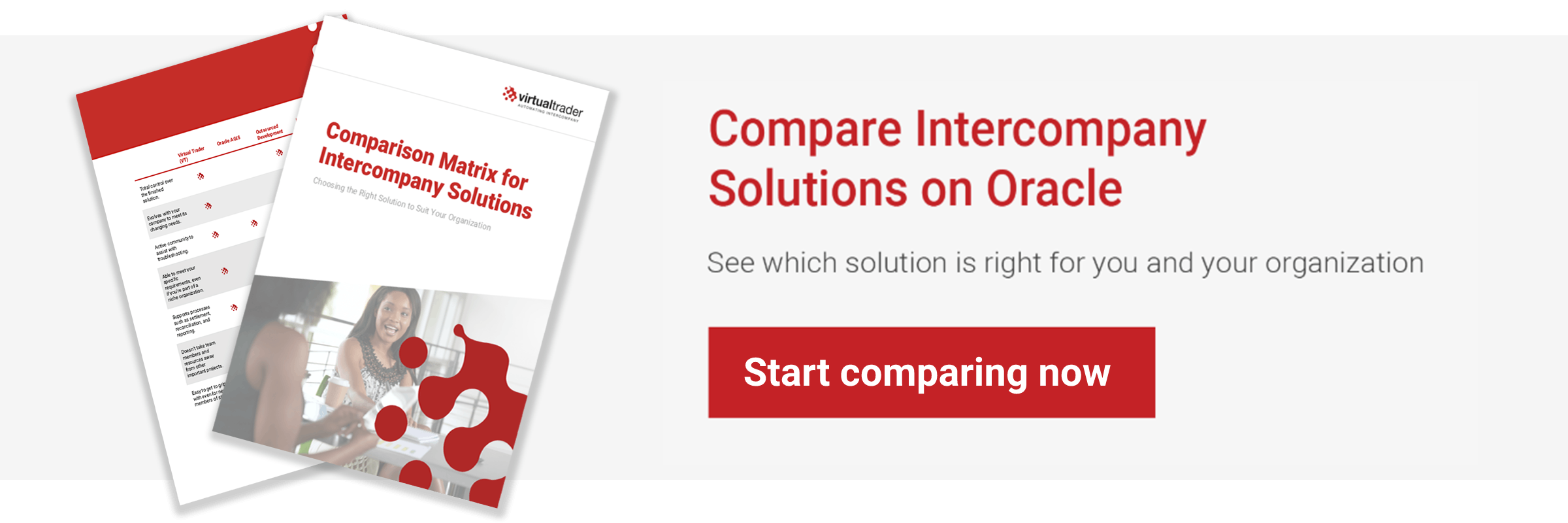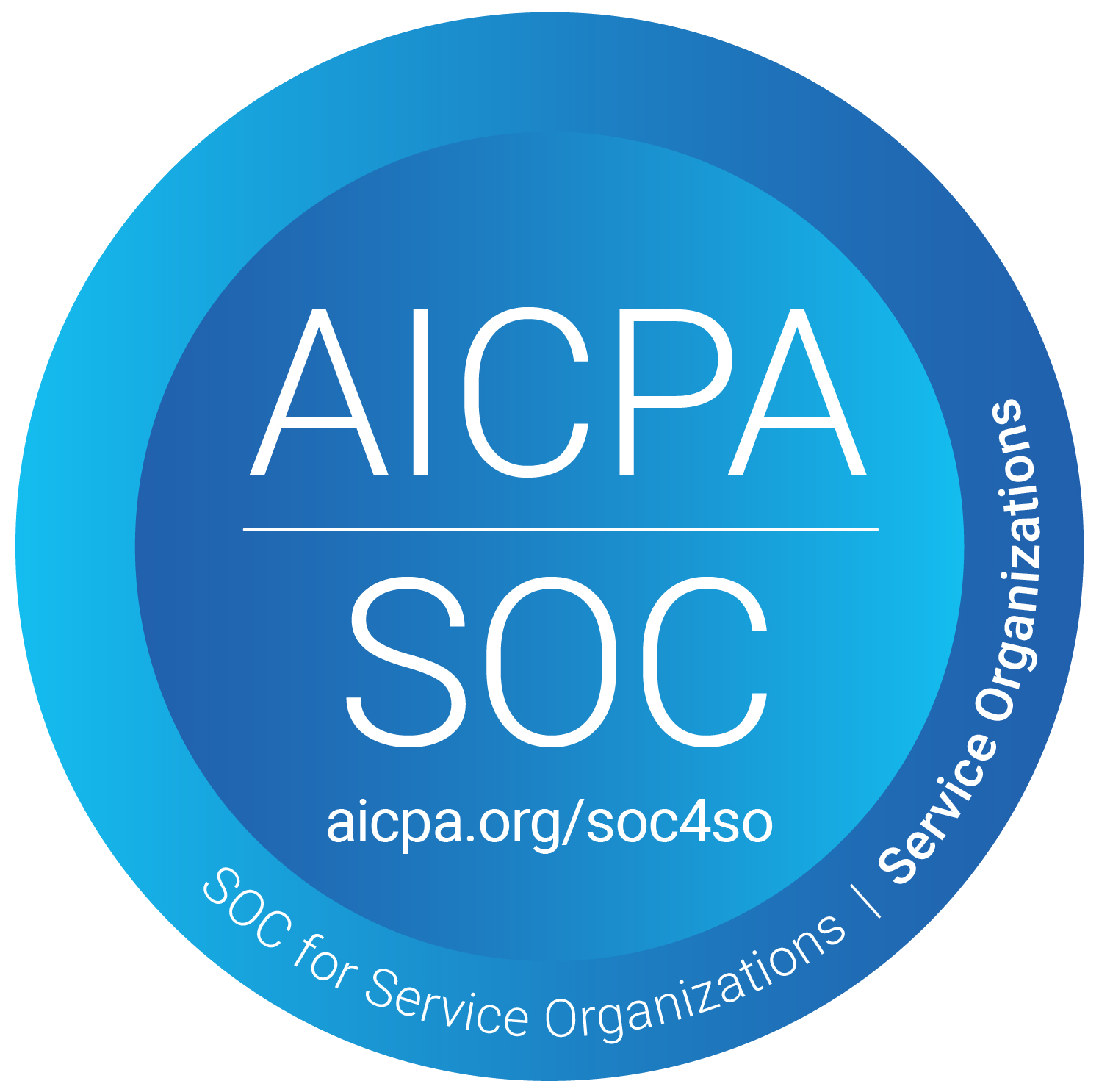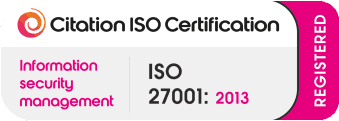Intercompany accounting can be a laborious, time-consuming task, especially for evolving companies. According to a 2016 Deloitte poll of more than 3,800 accounting professionals, disparate systems, intercompany settlement, complex intercompany agreements and transfer pricing compliance were the four biggest challenges for intercompany accounting.
But Deloitte also states that it’s not something that can be neglected as the work will only continue to accumulate and incorrect financial reporting can lead to punishments as severe as heavy fines and even jail time. Oracle AGIS can help by making the intercompany trading and reconciliation process easier. This means companies spend less time reconciling their transactions at period close. Here are the benefits of using Oracle AGIS for intercompany transactions:
-
Incorporating with Oracle eBusiness Suite so There’s No New Technology to Learn
-
Integrating with Oracle General Ledger
-
Ensuring Intercompany Balance by Transacting Payable & Receivable Journals Simultaneously
-
Providing a Flexible Workflow Approval Process as Approvals are Sent to Both Sender and Receiver
-
Sender and Receiver Can Update Their Own Accounting Details
Incorporating with Oracle eBusiness Suite so There’s No New Technology to Learn
Oracle Advanced Global Intercompany System, also known as Oracle AGIS, is part of Oracle EBS and is a centralized intercompany accounting system that streamlines the creation & approval of intercompany cross charges and subsequent reconciliation.
As AGIS is a part of Oracle EBS, it has the same look and feels as EBS. As it is built with the same technology as the rest of EBS, there’s no new technology for you and your team to learn. Access to AGIS is through the same login credentials and menu/responsibility facility that is used throughout EBS.
Integrating with Oracle General Ledger
As AGIS is an integrated part of the EBS family, it has all the advantages that an integration with General Ledger brings. In particular it ensures validation of all company and accounting details entered into AGIS journals. In addition it uses and conforms to the same accounting calendars and periods.
This integration ensures a seamless transition of journals from AGIS into General Ledger, and a timely and trouble free reconciliation.
Ensuring Intercompany Balance by Transacting Payable & Receivable Journals Simultaneously
A large cause of intercompany reconciliation difficulties arises from the failure to record Payable and Receivable entries for each company, within the same accounting period.
AGIS avoids this issue by ensuring that the Payables & Receivables journals are posted simultaneously and automatically once both sides have approved the intercompany trade.
Automating the process also reduces the chance of introducing discrepancies due to human error, which are often difficult and time consuming to identify and correct.
Providing a Flexible Workflow Approval Process as Approvals are Sent to Both Sender and Receiver
AGIS provides a flexible workflow approval process and this helps to ensure a seamless process. For instance, approvals will be sent to both sender and receiver. This is beneficial because it keeps everyone in the loop as it’s a systematic way of controlling who is responsible for the current action and who’s next in line.
Sending approvals to both sender and receiver means both parties can take action on the request. There’s no need to send emails back and forth or arrange meetings. This is especially helpful for global companies who may have subsidiaries in different countries - and hence, different time zones.
Sender and Receiver Can Update Their Own Accounting Details
Intercompany transactions and accounting becomes more challenging as companies evolve. In particular, globalization creates a new string of obstacles in terms of maintaining intercompany balance and keeping up with financial reporting, treasury and tax.
Usually the intercompany entries are predefined and controlled. However the cost or revenue entries can vary widely from company to company. Often local knowledge of the business operation and accounting standards for each company involved are needed to ensure costs are accounted correctly. AGIS allows the sending and receiving companies accounting to be entered independently, and thus ensures correct accounting and subsequent financial reporting to the authorities.
And All of These Benefits Can be Enhanced with One Additional Software…
AGIS is an important feature of EBS in that it provides a controlled and centralized mechanism for entering, approving and processing cross charges and management accounting entries between companies within an organization.
But there’s a way to improve this process, to incorporate companies not part of the Oracle solution, to provide advanced settlement options, and to effectively illuminate reconciliation issues before they happen.
Virtual Trader (VT) is software designed especially for maintaining intercompany balance and ensuring such relationships operate as smoothly as possible. VT automates the whole process, from the creation of journals to their management, settlement and ultimately, their reconciliation.
Hosted by Oracle, VT looks, feels and responds exactly the same way as the former platform so there’s no additional IT skills needed. VT merely provides additional functionality to ensure intercompany relationships run as seamlessly as they can. Download our eBook to read more on how this intuitive software works and how it stands up in comparison to other popular intercompany solutions below.




 US
+1 800 961 9640
US
+1 800 961 9640

